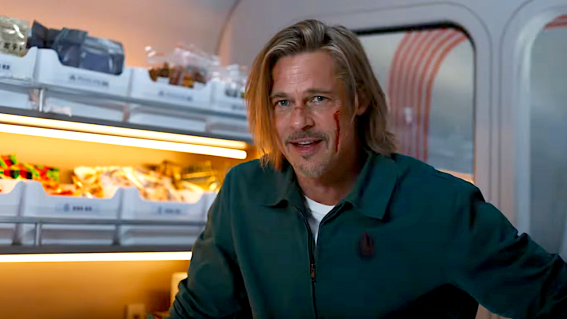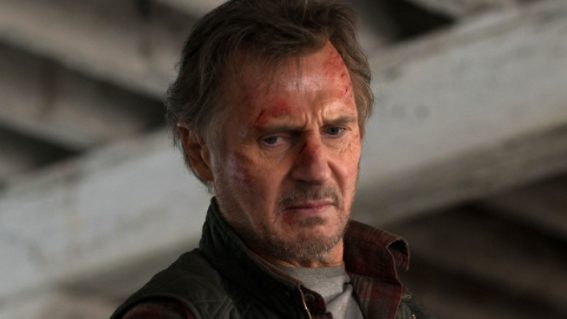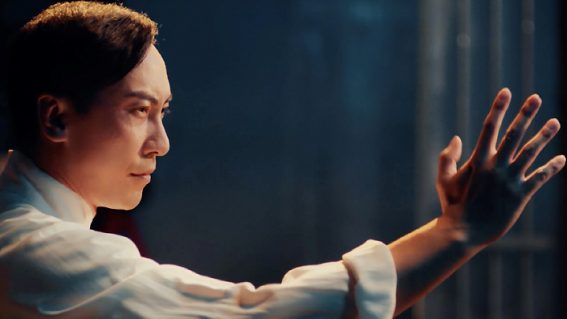Its characters flatline, but Ambulance delivers as a big dumb blockbuster
Bay’s camerawork and editing insist that every moment is the single most intense ever captured on film.
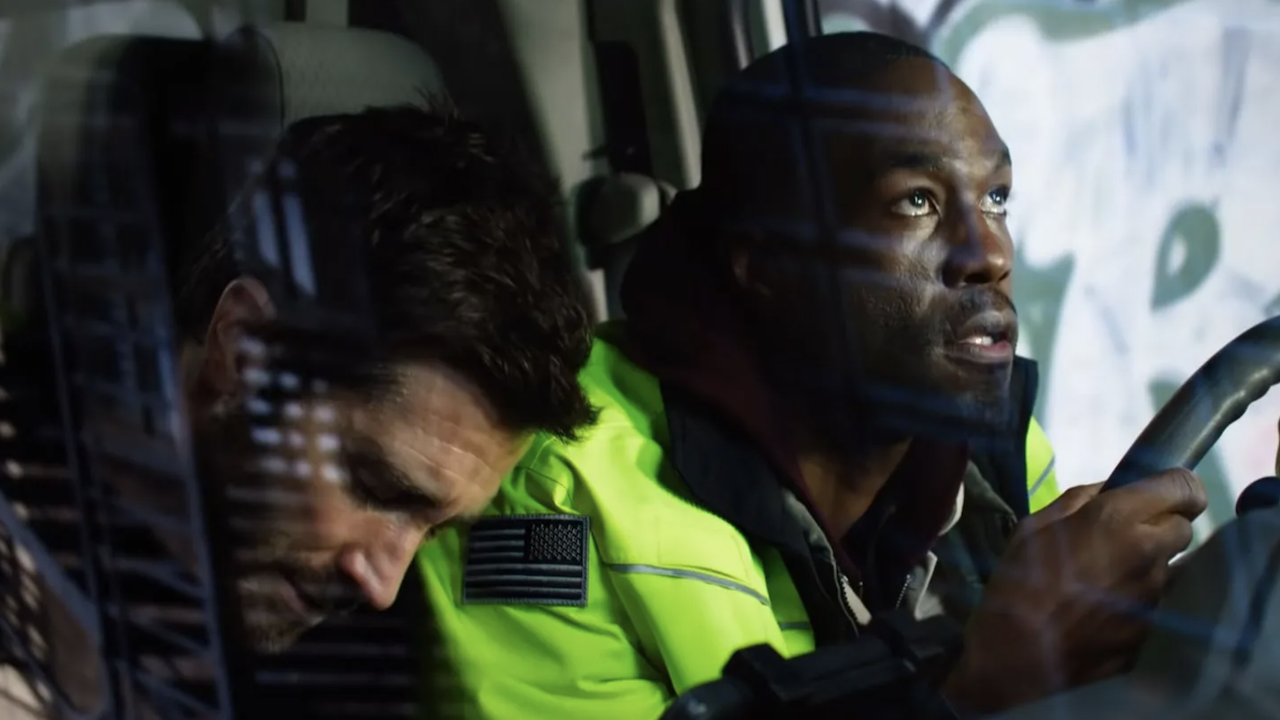
It’s too long and too unrealistic to elevate director Michael Bay’s reputation, but Ambulance is still an explosively fun time—especially amidst today’s drab blockbuster scene, says Rory Doherty.
It’s funny how things change. A decade ago, Michael Bay seemingly represented everything wrong with cinema; his maximalist directing style of crass, lowest-common-denominator scripts were routinely touted as the worst blockbuster filmmaking could get.
But after a decade of mind-numbing hyper-franchization, with the biggest money-makers looking flat and devoid of unique visual styles, directed by unimaginative or hopelessly-out-of-their-depth filmmakers, Michael Bay now almost seems quaint. Remember when you could identify films that had a stylistic vision? Remember when you could recognise an individual behind a massive studio project?
While it would certainly be nice if Michael Bay’s vision wasn’t disorientating his audience to the point of insensibility, along with making thinly veiled exaltations for law enforcement and US foreign policy, Ambulance does mark an improvement in his craft. There’s a pointed effort to centre stories around POC and female characters, and he gets to remind us that, yes, he can still execute the odd action scene with genuine dramatic tension. But all of this comes as a precursor to a film that just doesn’t do well enough to fully praise, even if there’s a fair amount of enjoyment to be found in its bloated runtime.
Struggling to finance an experimental surgery for his wife, marine veteran Will (Yahya Abdul-Mateen II) agrees to aid his estranged adopted brother Danny (Jake Gyllenhaal) in a daring bank heist. When it goes belly up, the brothers commandeer an ambulance carrying a wounded police officer and a paramedic, Cam (Eiza Gonzalez). Soon, every cop in Los Angeles is on their tail, and getting off scot-free seems a remote possibility.
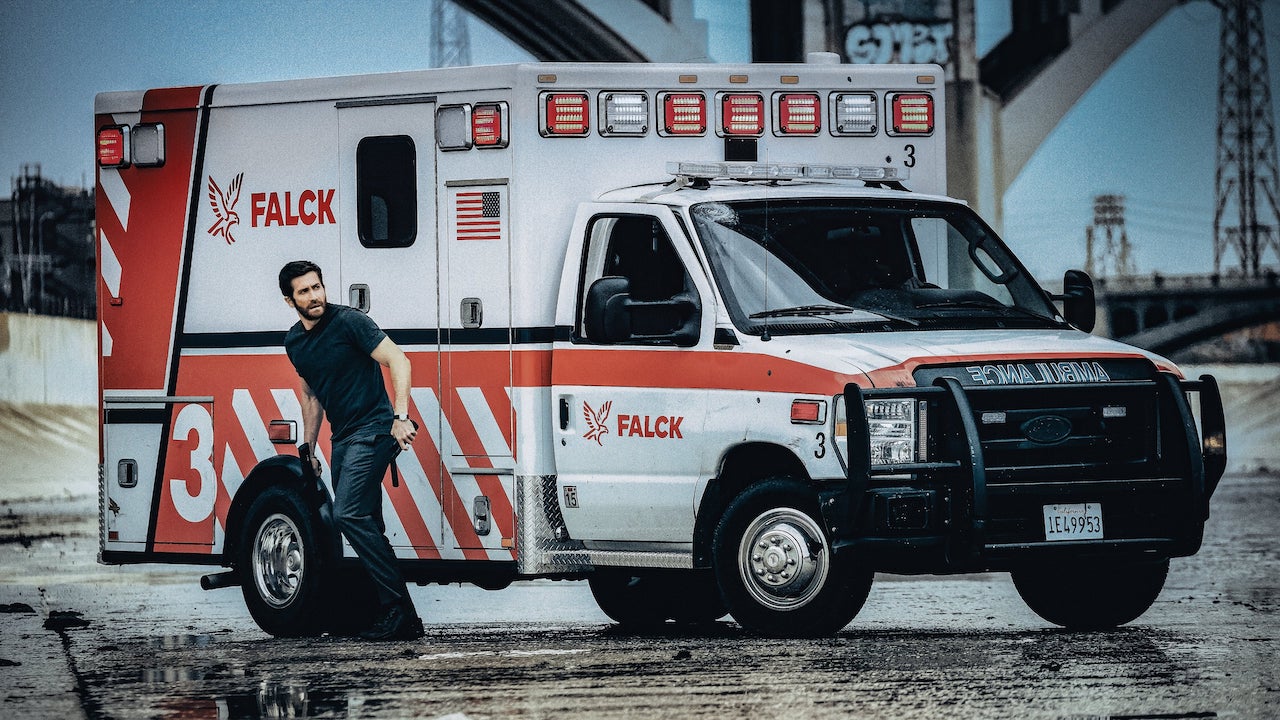
The main trifecta do well to anchor the film’s wild setpieces; Abdul-Mateen and Gonzalez act as an emotional foundation that fluctuates between robust and flimsy, and Gyllenhaal is given free reign to be as uncapped and eye-popping as he pleases. But when simple backstories are bluntly handed to the audience, and Ambulance seems not remotely interested in crafting authentic characters, efforts to make the audience get attached come across as manipulative.
After an opening that feels both stagnant and hurried, once the heist is underway it’s impressive how much Ambulance lights up. The robbers are lumbering, unintelligent blocks who seem intent on making everything worse for themselves, and Bay’s camerawork and editing insist that every moment is the single most intense ever captured on film—but it does capture, for better or worse, a sense of fun. It feels like Heat on cocaine, but instead of just Al Pacino’s character, everybody in front of and behind the camera is on the stuff.
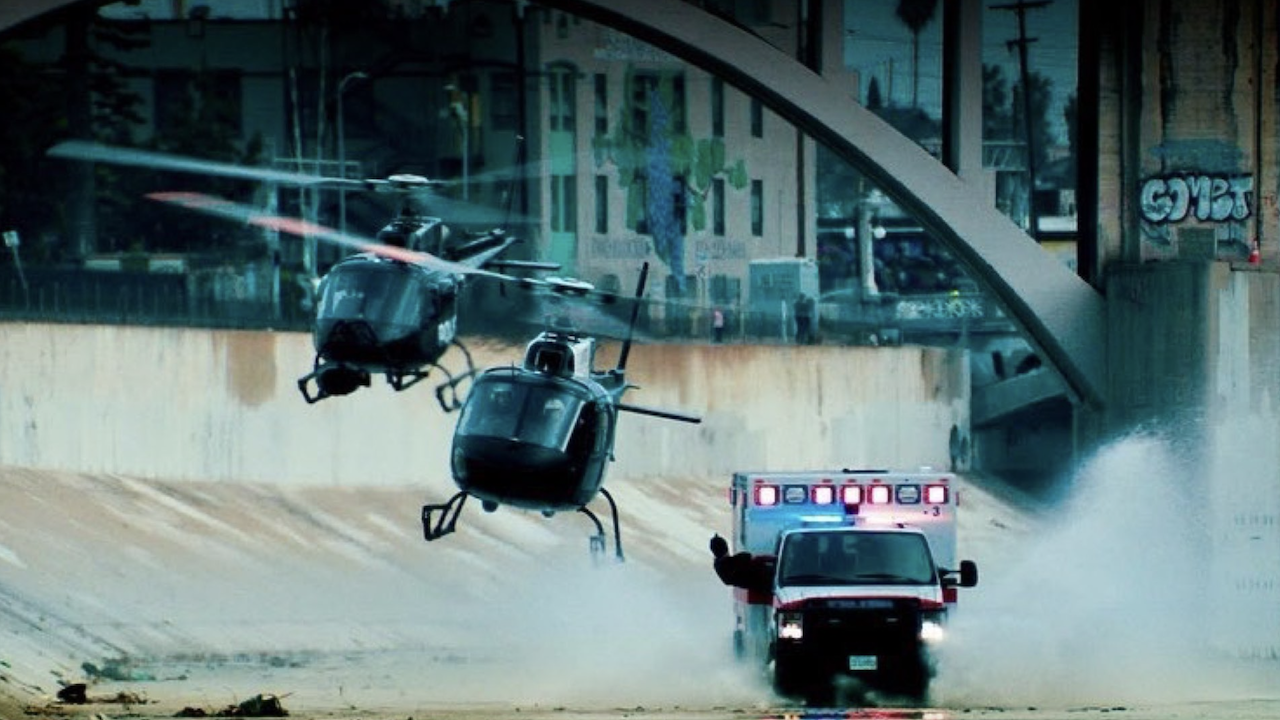
A film like this lives and dies not on its big spectacle, but on the little pockets of tightly-structured tension. There needs to be clear, progressing goals for our characters in order to prevent the chase feeling stagnant. Bay and screenwriter Chris Fedak understand this, inserting mini-obstacles for the central three to face as they careen around the highways. A makeshift operation scene feels tangibly visceral and pulse-racing, but like many beats, it loses its grasp on reality as it insists on becoming more and more overblown.
At 136 minutes, Ambulance deserves to be half an hour shorter (which would still make it 25 minutes longer than the 2005 Danish film it loosely adapts). It wouldn’t be hard to trim the runtime; just excise the half-dozen superfluous characters, and cut the inane improvised witticisms that never land. Bay almost makes up for it with terrific physical stunt work; the action may never be realistic, but at least it all feels like it’s actually happening, not lazily plugged in during post-production.
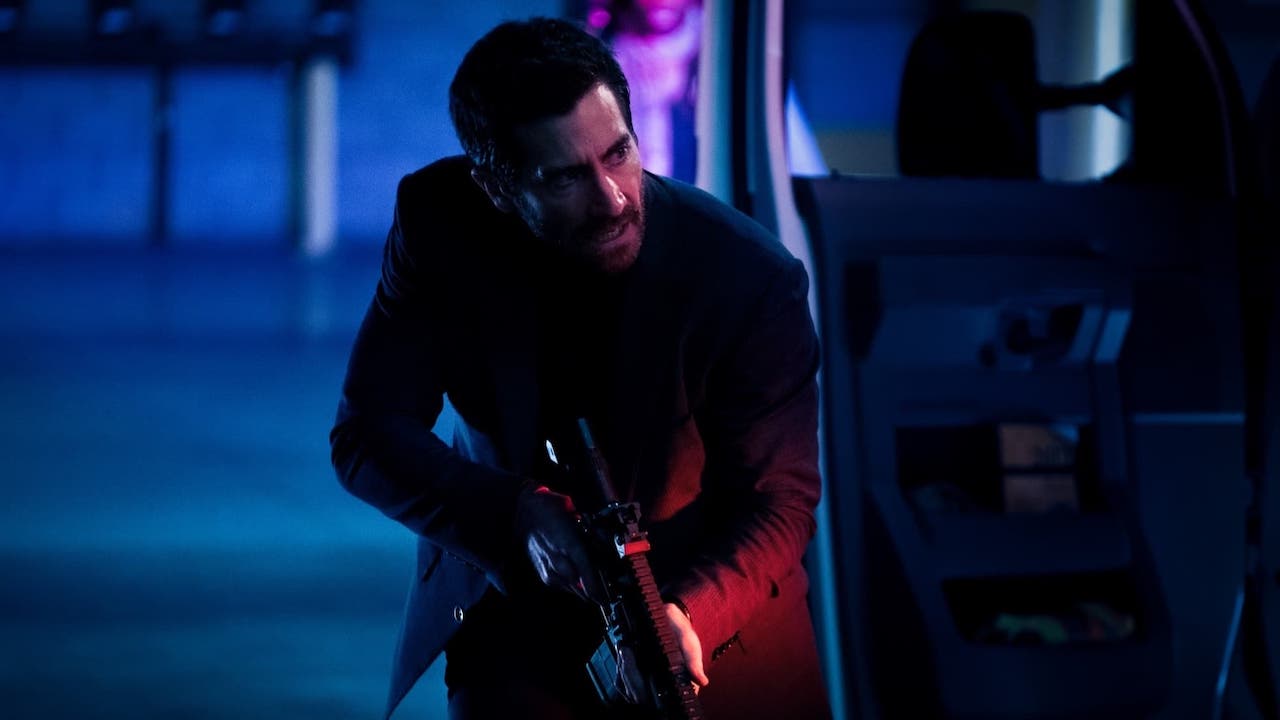
While stupid cinema is admirable and to be encouraged, you only have a finite amount of the audience’s time before the lack of any semblance of reality wears patience thin. And if you don’t have sturdy, engaging characters to back it up, the film flatlines.
Ambulance stands tallest when regarded in very specific contexts. Compared to modern franchise fare, it’s refreshing, and compared with Bay’s filmography, it’s by and large a more enjoyable and less confusing ride. But on its own merits, it struggles to make a compelling case why it should take up your time. You can’t fault anyone involved for trying, but it’s disheartening to think this was their best effort.









